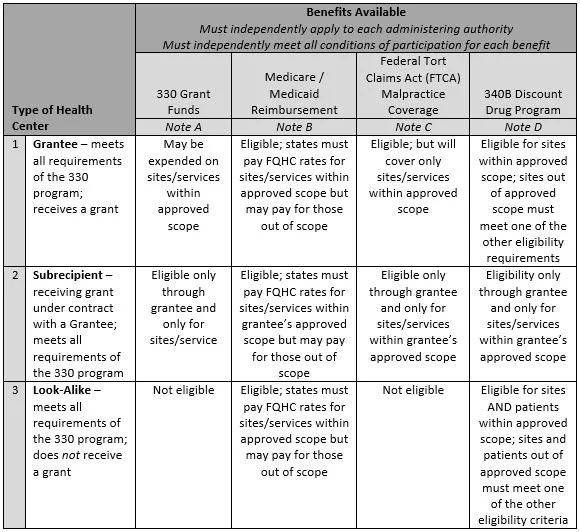
What is a Federally Qualified Health Center?
HISTORY
Physician-Activists Jack Geiger and Count Gibson helped launch the American Community Health Center Movement over 50 years ago with their founding of the first two community health centers in the nation: one in the Columbia Point section of Dorchester, Massachusetts and the other in Mound Bayou, Mississippi. Despite decades of political, social and economic challenges, community health centers have remained committed to their mission of providing accessible, affordable and high-quality health care for all, growing from a two-site demonstration project to what is now the largest unified primary care network in the United States.
WHAT IS A COMMUNITY HEALTH CENTER?
Community Health Centers (CHCs) are community-based and patient-directed organizations that deliver comprehensive, culturally competent, high-quality primary health care services. CHCs often integrate access to pharmacy, mental health, substance abuse, and oral health services in areas where economic, geographic, or cultural barriers limit access to affordable health care services. CHCs deliver care to the nation’s most vulnerable individuals and families, including people experiencing homelessness, migrant and seasonal agricultural workers, residents of public housing, and veterans.
A video - Out in the Rural about FQHC history
A video about what a Community Health Center’s purpose is
WHAT IS A FEDERALLY QUALIFIED HEALTH CENTER?
A Federally Qualified Health Center (FQHC) is a CHC designated by the federal government's Bureau of Primary Health Care (BPHC) and the Centers for Medicare and Medicaid Services (CMS) of the Department of Health and Human Services (HHS) under Section 330 of the Public Health Service Act. A FQHC provides comprehensive primary and preventive care to persons of all ages, regardless their ability to pay or health insurance status. Therefore, FQHCs are a crucial part of the health care safety net in the United States.
WHAT MAKES A FEDERALLY QUALIFIED HEALTH CENTER UNIQUE?
FQHCs deliver high quality, culturally competent, comprehensive primary care, as well as supportive services such as health education, translation, and transportation that promote access to care.
FQHCs provide services regardless of patients' ability to pay and charge for services on a sliding fee scale, dependent on an individual or family's income and size as it relates to the most recent Federal Poverty Guidelines.
FQHCs operate under the direction of patient-majority governing boards of autonomous community-based organizations. These include public and private non-profit organizations and tribal and faith-based organizations.
FQHCs develop systems of patient-centered and integrated care that respond to the unique needs of diverse medically underserved areas and populations.
FQHCs must meet all FQHC program requirements (administrative, clinical, and financial) to maintain designation
WHAT ARE THE BENEFITS OF FQHC DESIGNATION?
Health centers overcome geographic, cultural, linguistic, and other barriers to care by delivering coordinated and comprehensive primary and preventive services. This care reduces health disparities by emphasizing care management of patients with multiple health care needs and the use of key quality improvement practices, including health information technology.
Many health centers receive Health Center Program federal grant funding to improve the health of underserved and vulnerable populations. Some health centers receive funding to focus on special populations including individuals and families experiencing homelessness, migratory and seasonal agricultural workers, and residents of public housing. The majority of health center operating funds come from program revenue - Medicaid, Medicare, private insurance, patient fees, and other resources. There are three types of health centers under the Federally Qualified Health Center (FQHC) model: grantees, subrecipients, and look-alikes. Health centers that meet all Health Center Program requirements and receive a grant are known as grantees. Those who receive a grant under contract with a grantee and also meet all of the program requirements are known as subrecipients. Those organizations that meet all of the program requirements but do not receive a grant are known as look-alikes. The following table illustrates the benefits associated with each type of FQHC designation:
All health centers, including look-alikes, gain access to:
FQHC rate reimbursement from Medicare and Medicaid programs;
340B Drug Pricing Program discounts for pharmaceutical products;
Free vaccines for uninsured and underinsured children through the Vaccines for Children Program, and;
Assistance in the recruitment and retention of primary care providers through the National Health Services Corps (NHSC)


